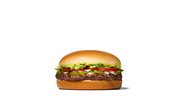News
The gloves are off: Lawsuit vs. McDonalds filed

December 14, 2010
After six months of talk, the Center for Science in Public Interest is finally walking the walk.
NPR reports that the organization filed a lawsuit today against McDonald’s for selling toys with its famous Happy Meals.
The lawsuit claims that McDonald’s violates California’s consumer protection laws by targeting children under 8 years old who don’t have the ability to understand advertising.
CSPI’s executive director Michael Jacobson said kids don’t know the difference between programming and a commercial and that dangling “these little toys in front of kids to pester their parents to take them to McDonald’s is a trick that works. It’s unfair to kids, they are being totally manipulated, and it’s unfair to parents.”
The class action suit, filed in a California state court, was filed by CSPI on “behalf of parents,” including Monet Parham, a mother from Sacramento, who told ABC News that she can’t compete with the enticement of the toy’s inclusion, and likened Happy Meals to birthday presents.
“I object to the fact that McDonald’s is getting into my kids’ heads without my permission and actually changing what my kids want to eat,” Parham said in a statement that announced the lawsuit.
Notably, the organization is not asking for damages in the lawsuit, just for McDonald’s to stop advertising toys.
McDonald’s responds
A McDonald’s spokesperson issued a statement this afternoon in response to the lawsuit:
“We are proud of our Happy Meals and intend to vigorously defend our brand, our reputation and our food.
We stand on our 30-year track record of providing a fun experience for kids and families at McDonald’s.
We listen to our customers, and parents consistently tell us they approve of our Happy Meals. We are confident that parents understand and appreciate that Happy Meals are a fun treat, with quality, right-sized food choices for their children that can fit into a balanced diet.”
Threat had been looming
The CSPI originally served McDonald’s a notice of its intent to sue in June, claiming that McDonald’s use of toys induces children to prefer foods that may harm their health. In addition to California, the notice also claimed the promotions violated state consumer protection laws in Massachusetts, Texas, the District of Columbia and New Jersey.
Shortly after the threat was issued, McDonald’s CEO Jim Skinner responded, calling CSPI’s rhetoric inflammatory and misinformed.
In a letter, Skinner wrote: “CSPI is wrong in its assertions, and frivolous in its legal threats. We have more choice and variety than ever before in our Happy Meals and across our menu. Furthermore, McDonald's makes available in-depth, comprehensive nutrition information about our food to give parents the support they need to make appropriate choices for their children.”
Following CSPI’s lawsuit threat, the organization's Facebook page was inundated with disapproving comments, most of which were promptly deleted.
Efforts have been made
The timing seems right to point the finger at kids’ meals for causing alarming childhood obesity rates. In addition to the CSPI suit, kids’ meals have been banned in San Francisco unless they meet certain nutritional guidelines, as well as in Santa Clara County.
The Campaign for a Commercial-Free Childhood also has launched campaigns against McDonald’s and Burger King for their toy marketing.
What’s perhaps lost in all of this finger-pointing is the progress that has been made by QSRs to embrace nutritional alternatives. For example, in 2006, McDonald’s made a pledge to not advertise meals that have more than 600 calories. Since that agreement, the actual food featured in McDonald’s youth-directed advertising shows Apple Dippers and low-fat milk as part of either a four-piece Chicken McNuggets or Hamburger Happy Meal.
Also, since the item's introduction in 2008, U.S. customers have purchased more than 100 million Happy Meals with the Apple Dippers option.
Additionally, McDonald’s maintains that Happy Meals are the right size for kids, a size that hasn’t changed since they were introduced in 1979.
Still, the CSPI isn’t satisfied. It conducted its own study that found that Happy Meals are ordered with french fries 93 percent of the time, and always include toys, regardless of nutritional value.
Jacobson said nutritional improvements hardly matter because parents can’t compete with the billions of dollars that are poured into the marketing campaigns.
"Regardless of the nutritional quality of what's being sold, the practice of tempting kids with toys is inherently deceptive," he said.
According to a 2006 U.S. Federal Trade Commission Report, QSRs spent more than $520 million on marketing and toys to promote kids’ meals.
CSPI no stranger to food drama
The CSPI is certainly no stranger to nudging – and at times shoving – the foodservice industry in healthier directions. It got the ball rolling on nutritional labeling at chain restaurants in 2003, well before the health care law was passed earlier this year mandating such measures.
It has slapped a lawsuit on KFC, mulled a lawsuit against Starbucks, urged the Food and Drug Administration to include health warning labels on soft drinks and has called for regulations on sodium levels in food.
Although the organization has targeted many companies, this is its first head-to-head with McDonald’s. Curiously, no other QSRs are being targeted in its kids’ meals lawsuit at this time.
*Flickr illustration by Joe_13.
 ChatGPT
ChatGPT Grok
Grok Perplexity
Perplexity Claude
Claude








